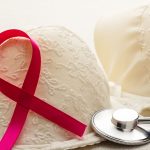Preventive Measures That Can Be Taken To Reduce The Risk
Breast Cancer is a disease that can break women not only physically but also mentally. In this blog, we shall enumerate the steps that should be taken so as to lower the risk of breast cancer.
Know Yourself:
{Note to the developer: Kindly link Know Yourself to the article “An ounce of Prevention is worth a pound of cure”}
The very first step in the preventive measures we should take is to know ourselves and our bodies. Women should know all about their bodies. It is not a bad thing to touch the intimate parts of your body out of curiosity. A teenager should also be knowledgeable about her body as it develops.
To prevent breast cancer, you should know all there is to know about your breasts.
Regular check-ups of your breasts at home by yourself and occasionally by medical professionals is also recommended.
The density of your breast tissue can also play an important role as the denser the tissues the more difficult is it to detect cancer even with a mammogram. This is because healthy breast tissue and the cancerous tumor will show up as white colors in the mammogram. If the amount of fat is high in the breast, then it can be difficult finding cancer tumors on a mammogram.
Get Active:

“Being fit is always a plus point as it strengthens the immune system.”
Being fit is always a plus point as it strengthens the immune system. On the other hand, being overweight has a lot of negative points. Having a daily exercise schedule is a good way to keep breast cancer at bay. Exercise protects us from breast cancer risks in many ways. Daily exercising plays an important role in controlling fat levels in a body.
The amount of fat is directly related to the risk of breast cancer. The reason is that fat also produces estrogen in women. If there is no control over fat, then the breast cancer risk can increase.
By daily exercising, I mean exercising only up to a limit of staying fit. This does not mean that one should start exercising like a professional. Rather, about 40-45 minutes per day for about 5 days of the week is recommended.
Breast Feeding:
Women with newborn babies should continue breastfeeding their babies for at least six months. This is because most studies show that there is a decrease of about 10% in the risk of developing breast cancer in new mothers. Moreover, the milk also helps the newborn baby to strengthen its immune system.
Also, during this period a woman does not menstruate. This helps in keeping the levels of estrogen low in the female body and hence lowers the risk of breast cancer.
Family History:

“One should be intimately aware of their family’s cancer history. “
One should be intimately aware of their family’s cancer history. Although there are only 5-7% cases in which inheritance is a factor in breast cancer cases, why assume any unnecessary risks?
It is not necessary that you should know about cancer causes affecting only female members of your family but also of your father. Sometimes, men can carry genes that cause breast cancer in their children. These genes may include BRCA1 and BRCA2. These not only increase the risk of breast cancer, but also of ovarian cancer and many other types of cancer. It also increases the risk of early prostate and testicular cancer in the children of fathers who carry these genes.
Minimum Radiation Exposure:
Many women work in environments where exposure levels of radiation can be high. For example, women who work near manufacturing plants and nuclear reactor plants may be exposed to radiations that can escalate their risk of breast cancer.
Mammograms and X-rays are also one source of radiation emitters. But in very low amounts. Still, be careful not to go to a very large number of checkups. But this does not mean that regular checkups should be abandoned. This risk also increases in women who have been previously treated for cancers like Hodgkin’s disease. Since they have been exposed to radiation during treatment their risks of developing breast cancer is increased.


 I welcome you all to the RakSutka blog. My name is Rovie Bautista. I manage the information on this blog. This blog provides solutions to the many health-related problems women today face. This is important in today’s world when people have less time to take care of their health and self-awareness.
I welcome you all to the RakSutka blog. My name is Rovie Bautista. I manage the information on this blog. This blog provides solutions to the many health-related problems women today face. This is important in today’s world when people have less time to take care of their health and self-awareness.




